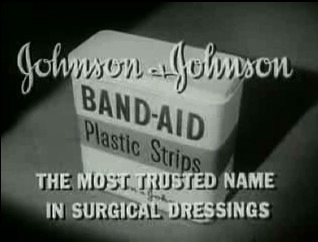
A federal court in California will soon decide whether a bold move by the Consumer Product Safety Commission and the Justice Department will pay off. At issue is whether two corporate executives should face prison time for endangering the public.
Judge Dale Fischer is considering what sentence to impose on Simon Chu and Charley Loh, who were convicted last November of conspiracy to defraud the CPSC in the first-ever criminal prosecution brought under the 1972 Consumer Product Safety Act. The two men were part owners and top officers of Gree USA, Inc., a subsidiary of the Chinese-owned Hong Kong Gree Electric Appliances Sales Co., Ltd. Chu and Loh were charged with deliberately withholding information about defective dehumidifiers that could catch fire and selling these units with false certification marks stating that the products met applicable safety standards. They were convicted of conspiracy to defraud the CPSC and failure to meet reporting requirements, though they were acquitted of wire fraud.
The CPSC worked with the Justice Department to prosecute Chu and Loh individually after first bringing a criminal action against the company. That case was resolved through a 2021 deferred prosecution agreement under which Gree was able to avoid a conviction by paying a penalty of $91 million and agreeing to provide restitution for any uncompensated victims of fires caused by its defective dehumidifiers.
It is unusual for a deferred prosecution or non-prosecution deal with a company to be followed by criminal charges against executives at the firm. Given the uncertainties related to cases against individual corporate executives, the convictions won by DOJ sent a strong signal.
The question now is whether Chu and Loh will face a strong punishment. Not surprisingly, lawyers for each of the men submitted filings to the court arguing for no prison time as all. Loh’s filing makes a case for leniency based on the fact that the CPSC failed to bring criminal charges in other instances in which companies and executives failed to promptly report hazards. At the same time, the document tried to downplay Loh’s culpability, claiming his “actions were not those of a ‘typical’ criminal or felon – though those are labels he will have to live with for the rest of his life – but of a well-intentioned man who wrongly opted for self-preservation over economic suicide.”
For good measure, the filing goes on to state: “Numerous family members, friends, and colleagues have written testimonial letters to the Court attesting to Mr. Loh’s true nature, integrity, and charitable endeavors. Their letter provide [sic] a true sense of his good character. They also confirm that he is the sole caretaker for two elderly and infirm people: his 101 year old father who has Alzheimer’s disease and his 90 year old godmother who has advanced stage cancer.”
It remains to be seen whether the judge is swayed by any of this. Prosecutors clearly are not. They are seeking ten-year prison sentences for each of the men.
Although it may not provide justification for leniency in his sentence, Loh’s argument that CPSC had failed to pursue criminal charges in similar cases does raise an awkward issue for the agency. Its position might be stronger if the actions against Loh and Chu were part of a broader effort to tighten enforcement.
That does not appear to be the case. There has been no wave of additional product safety criminal prosecutions. In fact, there has not even been a rise in civil enforcement. The CPSC has not announced any penalty actions in more than six months, and there were only half a dozen in all of last year.
It is commendable that the CPSC has acted aggressively against Gree and its executives, but it should not be a one-off. The agency needs to punish all manufacturers that fail to protect the public.





 Americans may have initially felt a bit smug upon learning that the combustible material responsible for the Grenfell Tower disaster in London is largely banned in the United States. Perhaps our regulatory system is not as deficient as we thought.
Americans may have initially felt a bit smug upon learning that the combustible material responsible for the Grenfell Tower disaster in London is largely banned in the United States. Perhaps our regulatory system is not as deficient as we thought. Baby powder, the product along with Band-Aids that for decades gave Johnson & Johnson a benign image, is now the latest symbol of its deterioration into one of the most unreliable of large corporations. Juries have recently awarded a total of $127 million to women with ovarian cancer who charge that their disease was caused by the talc in the company’s powder.
Baby powder, the product along with Band-Aids that for decades gave Johnson & Johnson a benign image, is now the latest symbol of its deterioration into one of the most unreliable of large corporations. Juries have recently awarded a total of $127 million to women with ovarian cancer who charge that their disease was caused by the talc in the company’s powder.
You must be logged in to post a comment.